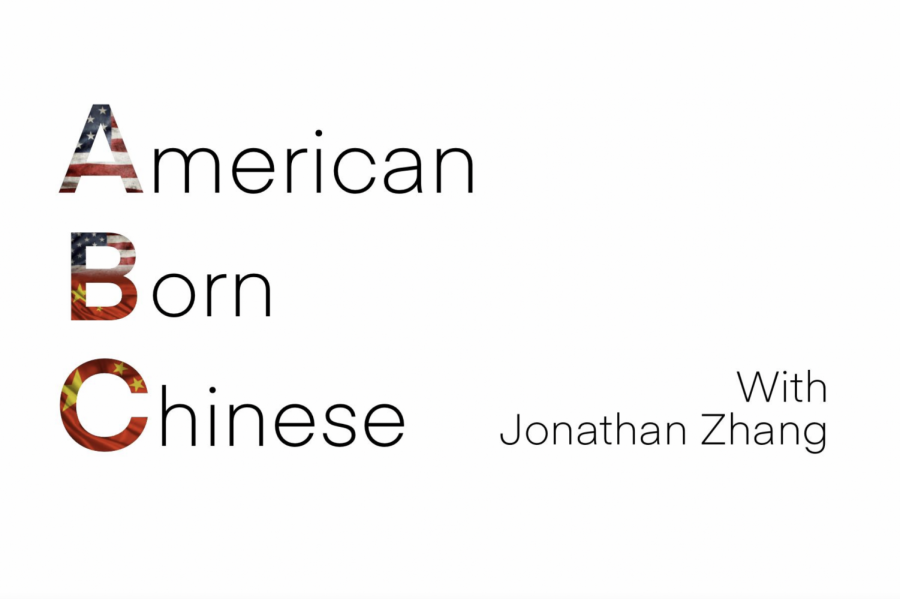ABC: The language of food
Credit: Elizabeth Zhong
In the latest installment of ABC: American Born Chinese, reporter Jonathan Zhang discusses the importance of food to his family.
December 2, 2021
Let’s talk about a language… a language that uses food as words. From the birthday noodles that I have instead of cake on my birthday to the little bowls of fruit that my parents bring up to my room while I’m studying, food has always been a huge part of my life.
For me, food is more than just sustenance that keeps me alive physically. Food brings flavor to my life and is a form of communication—it’s a way of expressing an apology, encouragement and happiness.
I’m sure that you’ve experienced instances where words couldn’t get the job done. For example, listening to an emotional piece of music could instill feelings in you that you can’t describe. It’s in times like these where words tend to fail you as you try to bridge the gap between emotion and expression.
Like music and other works of art, food can convey feelings that words can’t because, simply put, food doesn’t use words. Rather, the language of food uses a more direct form of communication that leaves interpretation up to the recipient. Consequently, showing our feelings with food can be easier than verbally expressing our feelings.
I’ve always found it reasonably easy to express my personal feelings to my parents, but I feel that my parents can struggle with expressing their own feelings to me at times. I’m honestly not sure what the root cause of their struggle to communicate is, but I think it might stem from the differences between the environments that my parents grew up in, and the environment I grew up in.
America puts a huge emphasis on self-expression, good or bad. Recently, with the surge in popularity of different social media, this need for acceptance of self-expression and the needs of others has only grown. Movements targeted at bringing awareness to mental health and other cultures are constantly popping up and garnering support. In other words, in America there is a great deal of emphasis put on the importance of communication and acceptance of one’s personal feelings.
In China, things are different. Life in China, especially for students and children, is a lot more study and work driven. Things that stray from the course of progress are often viewed as unnecessary or unimportant. This includes things like feelings. Moreover, as a result of the current repressive government of China, doing anything that isn’t viewed as positive or traditional is viewed as incredibly negative and punishable. From what I can tell, this is one of the contributing factors to the stoicism that many Chinese people exhibit.
And so, to combat our struggle to communicate, our family developed a unique unspoken system that revolves around other methods of communication, one of which happens to be food.
From a young age, I’ve been developing a personal dictionary for this special language. In this dictionary are the different foods that my parents gave me during certain circumstances and their meanings.
The modest bowls of assorted fruits brought to my room came to be encouragement to keep studying, a daily reminder that my parents see and acknowledge my hard work. The impossibly long noodles specially ordered by my parents on my birthday showed my parents dedication to preserving my happiness and providing for my future.
But it was the meals that followed the intense arguments I had with my parents that soon became the highlight of my little dictionary: feasts piled high with my favorite foods. These meals, more than anything, I came to know as the most important part of my dictionary—my parents’ heartfelt apology.
Things in my house are different from the typical family. I won’t deny that. And yet, I’ve come to appreciate the private conversations that my parents have with me in the form of food. I know that my parents and I will never get hung up over a petty argument that we had because, when words fail us, food can be our option to reconcile and make things right once again.





![Last Wednesday, the Wayland School Committee gathered to discuss a number of topics regarding the health curriculum and Innovation Career Pathway course. Another large topic of conversation was the ways to potentially mitigate distracting cell phone usage. "These [phones] are going to distract your learning and social relationships," Superintendent David Fleishman said. "That's concrete right there."](https://waylandstudentpress.com/wp-content/uploads/2025/06/Screenshot-2025-06-04-at-9.49.31 PM-1200x886.png)



























![Troy Hoyt finishes the Boston Marathon, running for the Hoyt Foundation. T. Hoyt is the son of Hoyt Foundation CEO Russ Hoyt.
“[Running a marathon] might seem like a big thing, when it’s presented to you at first, but if you break it up and just keep telling yourself, “Yes, you can,” you can start chipping away at it. And before you know it, you’ll be running the whole 26 miles, and you won’t even think twice about it.” T. Hoyt said.](https://waylandstudentpress.com/wp-content/uploads/2025/04/C36E8761-1CBB-452E-9DF2-543EF7B1095E_1_105_c.jpeg)















































Maureen Devlin • Dec 6, 2021 at 5:33 AM
Growing up, food was an integral part of my Irish/Polish-American household communication too. An ice cream sundae often marked a celebration while my mom’s mac and cheese could be found at almost every family gathering. Reading WSPN articles has been a great source of news, information and learning for me. The authors, many who were my former students, do a terrific job choosing awesome stories to investigate and share with all of us. It was a pleasure to read to this article, Jonathan! (The article also related quite well to last night’s 60 Minutes piece about China)